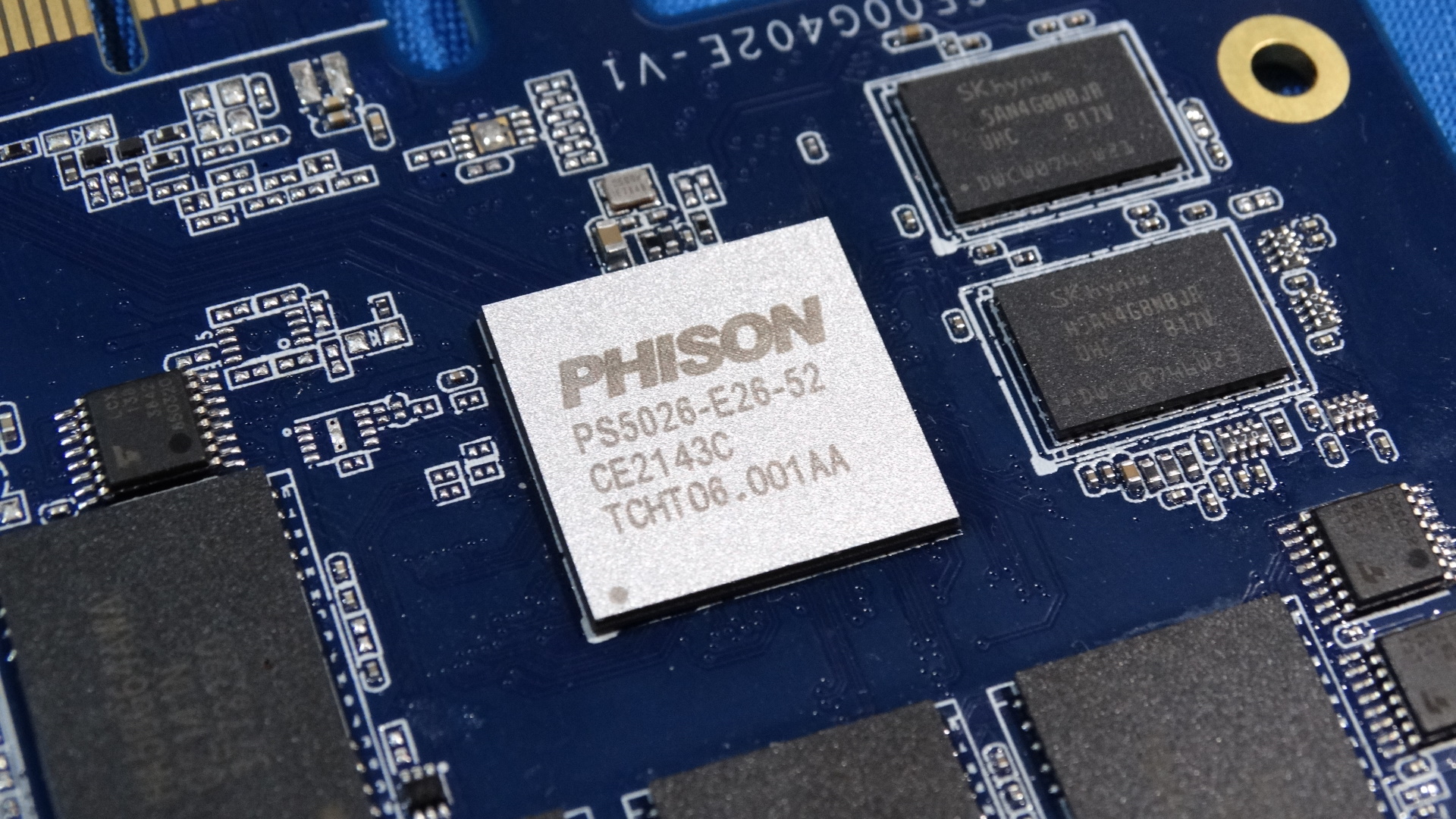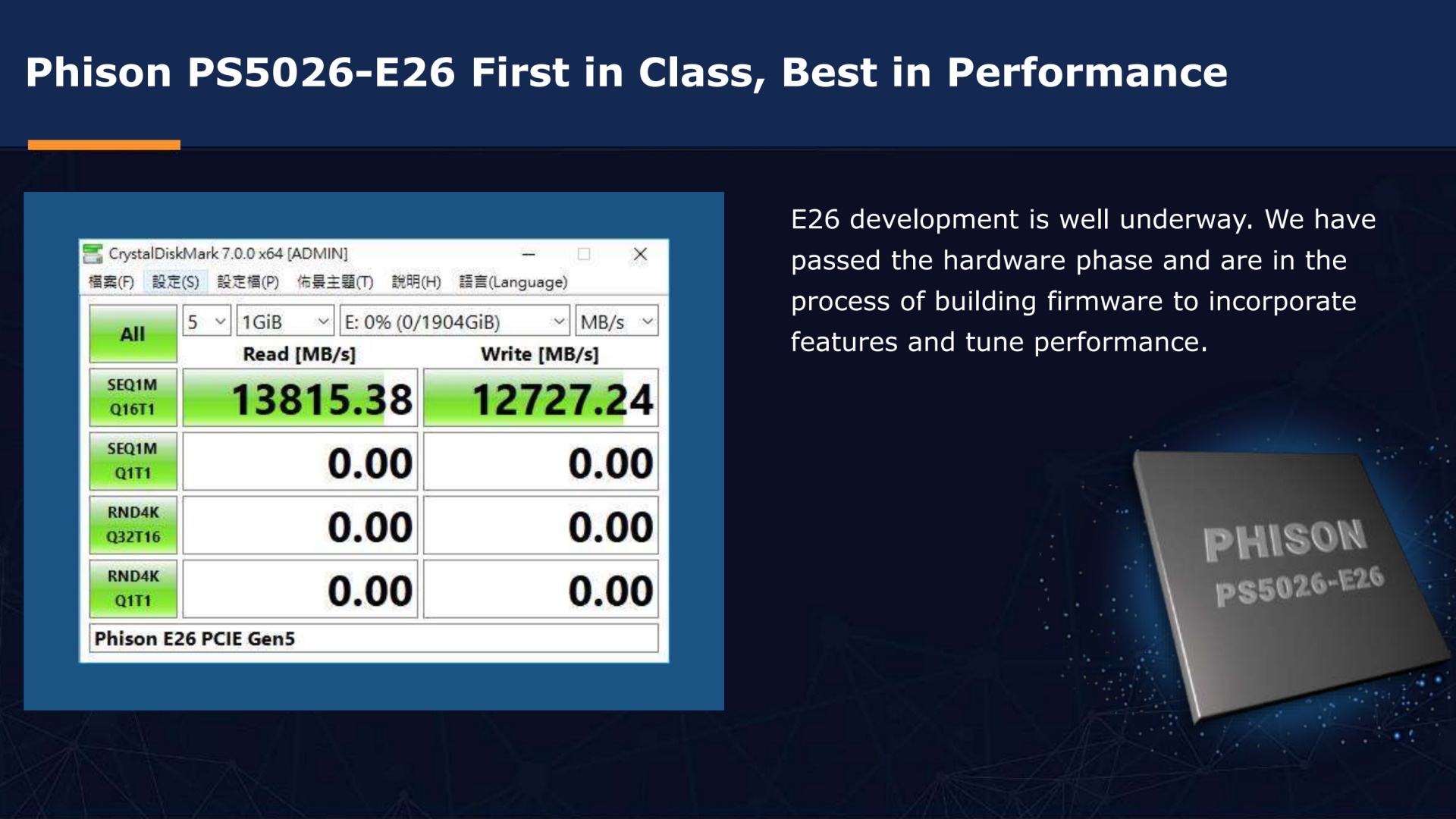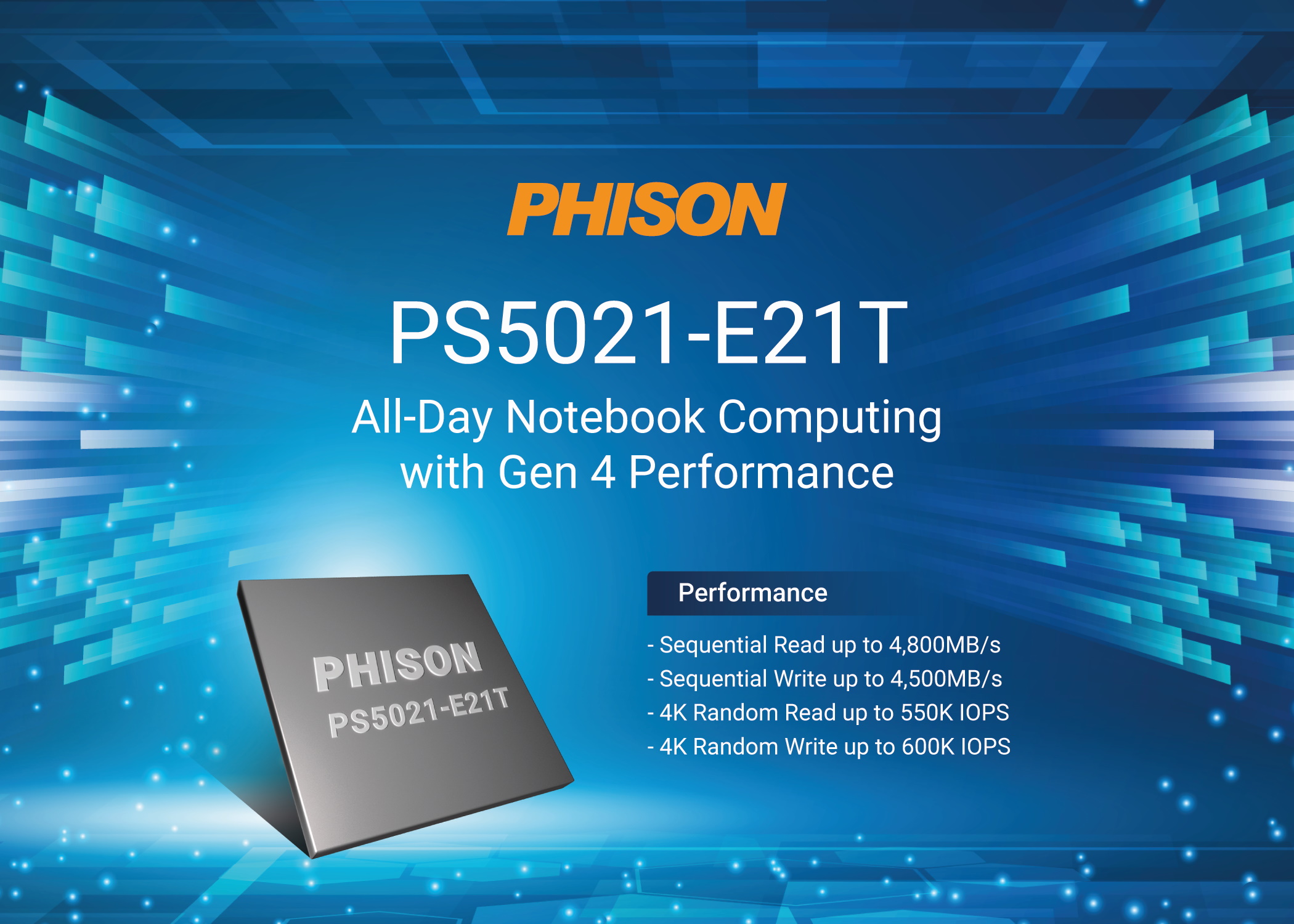Phison's next-gen PCIe 5 SSD controller is nearly twice as fast as the best PCIe 4 drives at 13.5 GB/s
Storage is about to get a whole lot faster.

One of the first PCIe 5.0 SSD controllers is already hitting 13GB/s in the labs, making the future bright for seriously quick transfers. Phison, the makers of the E26 controller that's behind these numbers, already has samples with motherboard manufacturers in preparation for the big rollout later this year. Throw in the promise of cheaper SSDs, and Microsoft's DirectStorage, and 2022 could well be the year that SSDs take gaming to the next level.
If you're down with your NVMe SSD controllers, Phison shouldn't need much of an introduction. Its E16 controller single-handedly kick-started the whole PCIe 4.0 storage push with the release of the AMD Zen 2 back in 2019. This E16 controller could be found in pretty much all the first-gen PCIe 4.0 drives. This was followed by its E18 controller at the start of 2021 that pretty much dominated the market for the entire year and can be found in the likes of the FireCuda 530, Sabrent Rocket 4 Plus, and the Corsair MP600 Pro XT.
Phison is obviously looking to continue this impressive run with its E26 controller. Its full name is the PS5026-E26 and it is designed to start the ball rolling with PCIe 5.0 SSDs, which until now have been notably absent from the desktop arena, despite Intel's Alder Lake supporting the standard. The headline-grabbing sell for PCIe 5.0 in terms of storage is that it doubles the available throughput of the interface, up to a theoretical maximum of 128GT/s, or 16GB/s.

Real-world performance is always less, but Phison is already claiming some impressive numbers in testing, with CrystalDiskMark showing a read of 13,815MB/s and writes of 12,727MB/s. For comparison, the E18-powered Seagate FireCuda 530 manages reads of 7,300MB/s and writes of 7,000MB/s. Quite the improvement then. Phison says it has passed the hardware phase, having taped out at the end of 2020 in fact, and is now onto building firmware and tuning performance. The fact early samples are with motherboard manufacturers is a good sign though.
It's still very early days for PCIe 5.0 of course, and some may feel that PCIe 4.0 still hasn't quite delivered on its promise for transforming gaming. There are a couple of reasons for this, with price being an obvious factor—PCIe 4.0 are notably more expensive than PCIe 3.0 drives—plus not every platform support PCIe 4.0, and the need for standards to fully unlock the performance of offer. There's not much Phison can do about the last two, but when it comes to pricing it does have another controller on the way that could help there.

The PS5021-E21T is a PCIe 4.0 controller offering sequential reads and writes of up to 4,800MB/s and 4,500MB/s respectively. The interesting thing here though is that this is a DRAM-less offering, which should make for some budget-friendly drives. Samsung already has a DRAM-less drive in the form of the Samsung 980 (the non-Pro offering), and the price of that drive makes it a tempting offering, even though that's limited to PCIe 3.0 performance.
The other element we're waiting on is Microsoft's DirectStorage. This is the element that should transform gaming with speedy SSDs. There's still no official word on when that will land, and it's going to take a while before games fully use the standard, but the potential is phenomenal, and could genuinely change the way we game. Massive streaming worlds, more detailed textures, insanely complex models, and not a load screen in sight.
The biggest gaming news, reviews and hardware deals
Keep up to date with the most important stories and the best deals, as picked by the PC Gamer team.
It looks like storage is down to have another interesting year.
Alan has been writing about PC tech since before 3D graphics cards existed, and still vividly recalls having to fight with MS-DOS just to get games to load. He fondly remembers the killer combo of a Matrox Millenium and 3dfx Voodoo, and seeing Lara Croft in 3D for the first time. He's very glad hardware has advanced as much as it has though, and is particularly happy when putting the latest M.2 NVMe SSDs, AMD processors, and laptops through their paces. He has a long-lasting Magic: The Gathering obsession but limits this to MTG Arena these days.


